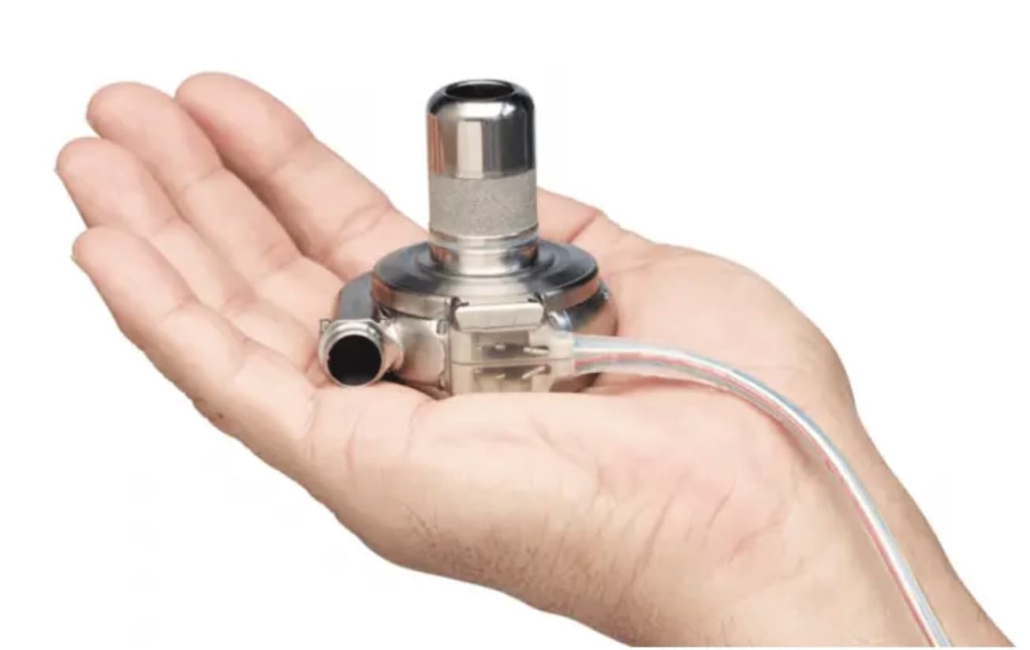Cardiovascular device recalls: Study reveals gaps in safety testing
A new study finds that most cardiovascular devices subject to the most serious recalls by the US FDA lacked rigorous clinical testing before approval, raising concerns about patient safety.

Medtronic’s HeartWare Ventricular Assist Device (HVAD) System was recalled in 2022 due to a risk of the internal pump failing. This could lead to serious injury or death for patients with heart failure who relied on the device.
A cross-sectional analysis of Class I recalls for cardiovascular devices over a 10-year period has revealed significant gaps in both premarket and postmarket safety testing. The study, published 17 September 2024 in Annals of Internal Medicine, found that the majority of recalled devices did not undergo clinical trials before authorisation and were not required to have postmarket surveillance studies. Even when premarket clinical testing was conducted, the evidence was often limited in scope and quality.
Premarket testing limitations
The researchers, led by Claudia See from the University of California, San Francisco, examined all Class I recalls involving cardiovascular devices from 1 January 2013 through 31 December 2022. Class I recalls are the U.S. Food and Drug Administration’s (FDA) most severe designation, indicating a reasonable probability of serious adverse health consequences or death.
Of the 157 unique cardiovascular devices subject to Class I recalls during this period, only 30 (19.1%) underwent any premarket clinical testing. The majority of recalled devices (71.3%) were moderate-risk devices approved through the 510(k) pathway, which requires manufacturers to demonstrate substantial equivalence to an existing device but does not necessarily require new clinical data.
Even among the devices that did undergo clinical testing, the quality of evidence was often suboptimal. The researchers found that 66% of studies used nonrandomised designs, 65% had no active control group, and 79% relied on surrogate markers rather than clinical outcomes as primary endpoints. Additionally, the median follow-up time for these studies was only 6 months, which may be insufficient to capture long-term safety issues, particularly for implantable devices.
Postmarket surveillance gaps
The study also highlighted significant gaps in postmarket surveillance. Only 22 (14.0%) of the recalled devices had any postmarket evidence-generation requirements. Among premarket approval (PMA) devices, which are considered high-risk, less than half (48.9%) had mandated postapproval studies.
Notably, the FDA did not use its authority under Section 522 to require postmarket surveillance for any of the recalled devices in the sample, despite this being a tool specifically designed for situations where device failure could have serious health consequences.
Implications for patient safety
The findings of this study have significant implications for patient safety. Class I recalls affected a median of 7,649 units per recall event, potentially impacting thousands of patients. The most common causes for recalls were device design issues (31.4%) and process control problems (16.1%).
Dr See and colleagues note that the limited clinical evidence supporting the use of these devices, combined with the scope of the recalls, underscores the need for more robust safety monitoring and evidence generation throughout the device lifecycle.
Regulatory considerations
The study’s findings come at a time when the FDA is considering reforms to its device approval processes. The agency has recently proposed changes to the 510(k) pathway, aiming to advance consensus standards for device performance and clarify premarket clinical testing requirements.
The researchers suggest that their analysis of recalled cardiovascular devices can help inform these efforts to define evidentiary expectations. They also highlight the potential role of unique device identifiers (UDIs) in generating real-world evidence about device utilisation and outcomes, although the incorporation of UDIs into healthcare data systems remains incomplete.
Calls for improvement
The authors propose several measures to enhance device safety:
- Requiring premarket testing for device types with high rates of recalls
- Developing standardised schedules for postmarket device follow-up based on relative risk
- Increased use of the FDA’s Section 522 authority to mandate postmarket studies for frequently recalled device categories
- Allocating a larger portion of user fees to support postmarket surveillance efforts
- Mandating the incorporation of UDIs into health care data systems to improve tracking and outcomes assessment
The researchers also emphasise the need for improved education about device regulation and safety among clinicians, who play a crucial role in reporting adverse events and advocating for device safety measures.
Limitations and future directions
The study authors acknowledge several limitations, including incomplete information in FDA databases and the focus solely on Class I recalls. They suggest that future research could examine a broader range of recall classifications to provide a more comprehensive picture of device safety issues.
Commentary
In an accompanying commentary, Ezekiel J. Emanuel, MD, PhD of the Department of Medical Ethics and Health Policy Healthcare Transformation Institute Perelman School of Medicine and Department of Healthcare Management Wharton School University of Pennsylvania, noted: “The balance between speed and safety needs to be recalibrated to emphasize safety. Innovation is only real if it results in products that enhance patients’ health.”
He added: “Like the FDA, Congress must emphasize safety along with innovation. In addition, legislation could require UDI integration into interoperable EMRs to ensure that device data are available wherever and whenever the patient seeks care.”
Dr Emanuel concluded: “See and colleagues’ assessment of device regulation is sobering and reminds us that device regulation should emulate drug regulation. For all its limitations, drug regulation is more standardized, has greater reliance on the accumulation of substantial, controlled clinical research, with equivalent evidentiary requirements for “me-too” drugs.”
Reference:
See, C., Mooghali, M., Dhruva, S. S., et. al. (2024). Class I Recalls of Cardiovascular Devices Between 2013 and 2022: A Cross-Sectional Analysis. Annals of Internal Medicine. https://doi.org/10.7326/ANNALS-24-00724

